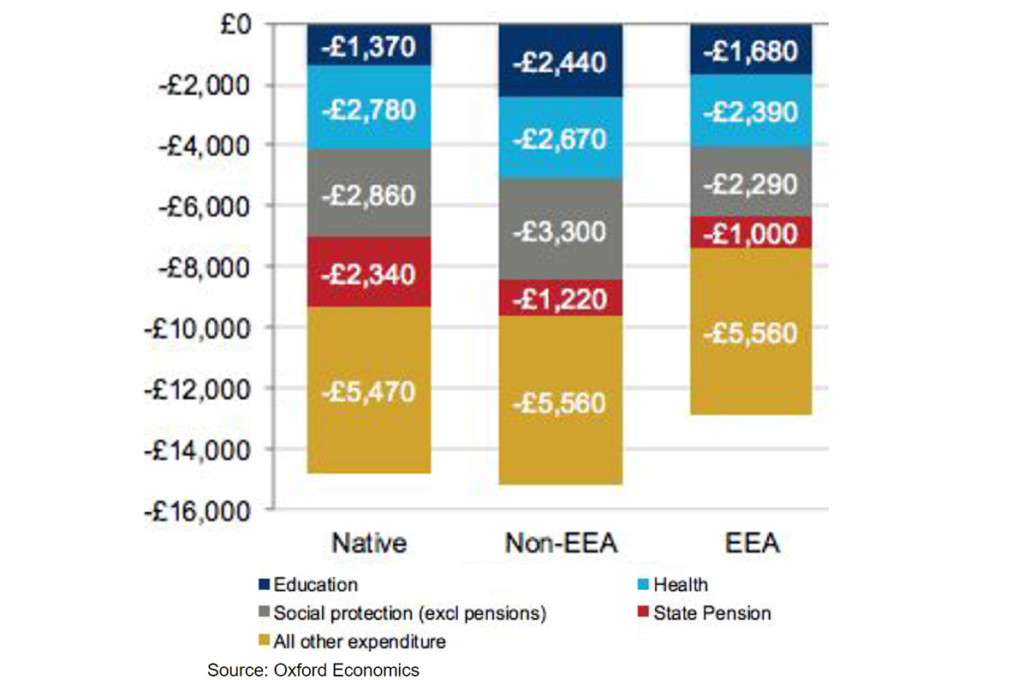The answer to Tory attempts to weaponise EU migration isn’t just to stress its advantages to the UK as a whole. We must share those benefits across the country.
Priti Patel has today promised that the Tories would cut “immigration overall” if they are re-elected and quit the EU. Forget for a moment that the party has never hit its target of cutting net migration to under 100,000. Forget too that the Home Secretary didn’t give any details of how she would hit the new, non-numerical target. Don’t even dwell on the fact that net migration from outside the EU is now nearly four times as big as from Europe.
Brexiters are unscrupulous in the way they whip up hysteria about migration. They did it in the referendum with their lie that Turkey was scheduled to join the EU in 2020. They are doing it now. Patel’s comments follow hard on the heels of Michael Gove’s false statements that free movement makes Britons less safe and is bad for the NHS.
Free movement benefits the country
Free movement from Europe enriches our communities in many ways. European citizens contribute to our culture – and many have become our friends and family.
They also take care of our sick and elderly. More than 65,000 NHS workers in the UK come from other EU countries. That includes 11,000 doctors and 20,000 nurses. On top of that, 100,000 EU nationals are social care staff.
Want more InFacts?
To receive regular updates from the InFacts team, fill in your details below.
European citizens also boost our public finances, because they pay more in taxes than they consume in public services. Migrants from the European Economic Area (EEA) made a positive contribution of £4.7 billion in 2016/2017, according to research for the government’s own Migration Advisory Committee.
Average contribution to government revenue components, 2016/17 (Average £ per accountable adult)

This is because most EEA citizens are young and well-educated, and tend not to need so much healthcare or receive as much in pensions. As a result, they pay more in taxes and consume less in public services than UK nationals.
Average contribution to government expenditure components, 2016/17 (Average £ per accountable adult)

Oh, and remember that free movement cuts both ways. UK citizens are free to live, work and retire in 27 other countries. That’s a massive opportunity they will lose if we quit. It will be the younger generation who miss out most.
Multi-billion fund
The problem is that the money EU citizens bring to the public purse doesn’t end up where it is needed. This is why CommonGround has proposed that a large proportion of the annual contribution of EEA migrants is put into a new “Migration and Communities Fund”.
The money would be channeled to those parts of the country which have experienced sudden or significant population changes – showing that free movement has tangible benefits for local communities and making a real difference to people’s quality of life.
The money would go not just to areas where EEA citizens have arrived; but also to areas which have seen large migration from outside Europe.
The annual Migration and Communities Fund would be ring-fenced within the public finances. The Treasury would not be able to raid it for other purposes.
The money would be given to local authorities. It could be used for a wide variety of purposes: to relieve pressure on GP surgeries, so the ratio of doctors to patients is at the national average; to boost the number of teachers in schools; to invest in local infrastructure; for sports or youth centres; and for programmes to help migrants who, for example, want to learn English.
Local people would decide exactly how the money was spent, letting them have some measure of control in their communities.
Free movement is good for Britain. We can make it work even better.
Let’s fix it, not Brexit.
This is an edited and updated excerpt of a report by CommonGround
The headline was changed on November 26.
Edited by James Earley


Leave a Reply